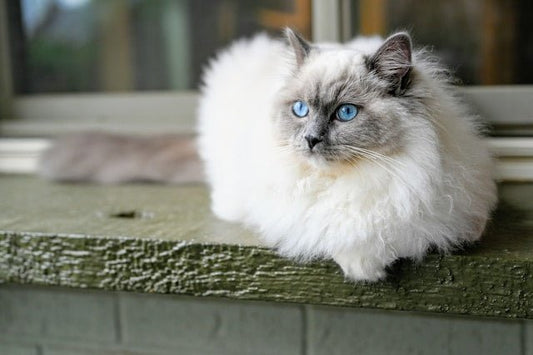5 Common Health Issues for Maine Coon Cats

Welcome to Catati, where our commitment to feline well-being goes beyond admiration – it's rooted in understanding. As devoted Maine Coon lovers, we recognise the unique needs of these majestic cats. Today, we'll explore five common health issues affecting Maine Coons and share effective solutions to ensure they lead happy, healthy lives.
1. Maintaining Optimal Weight for Maine Coons through a Balanced Lifestyle

Maintaining the ideal weight for your Maine Coon is crucial for their overall well-being. These robust cats can be prone to obesity, leading to potential health issues such as diabetes and joint problems. Ensure a balanced lifestyle by offering a high-quality, portion-controlled diet.
Engage your Maine Coon in interactive play and regular exercise to keep them agile. Catati recommends consulting with your veterinarian to determine the best diet and exercise plan for your cat's specific needs.
2. Nurturing Maine Coon Dental Wellness with Holistic Oral Care

Photo by Romain Chollet on Unsplash
Oral health is often overlooked but is essential for the longevity of your Maine Coon. Gingivitis and periodontal disease can lead to more significant health concerns. Develop a holistic oral care routine by incorporating tooth-friendly treats, dental toys, and regular grooming.
Brush your Maine Coon's teeth regularly using cat-friendly toothpaste and a soft brush. Regular veterinary dental check-ups are also vital for maintaining optimal oral health.
3. Establishing a Maine Coon Coat Care Routine to Manage Hairball Issues

Photo from Hepper
Maine Coons are known for their luxurious, thick coats, which can lead to hairball issues. Establishing a regular grooming routine is key to managing shedding and reducing the risk of hairballs. Invest in high-quality brushes designed for long-haired cats and groom your Maine Coon at least a few times a week.
Consider incorporating hairball control supplements or treats into their diet, following the recommended guidelines. This proactive approach will help keep your Maine Coon's coat healthy and reduce digestive discomfort.
4. Early Detection Strategies for Vigilant Urinary Tract Care in Maine Coons

Photo from Hepper
Maine Coons may be prone to urinary tract issues, making vigilance and early detection crucial. Watch for signs of distress such as frequent urination, straining, or changes in litter box behavior.
Provide ample fresh water and consider incorporating wet food into their diet, as it contributes to increased hydration. Regular veterinary check-ups, including urine analysis, are essential for monitoring urinary tract health.
5. Providing Tailored Care for Genetic Considerations in Maine Coons

Photo from mainecooncompanion
Maine Coons, like all cat breeds, may have genetic predispositions to certain health conditions. Responsible breeding practices and regular veterinary check-ups are crucial for identifying and managing potential genetic issues.
Consider breed-specific genetic testing to gain insights into your Maine Coon's health profile. Catati emphasises the importance of working with reputable breeders who prioritise the long-term health and well-being of Maine Coons.
At Catati, we believe in providing not just products but comprehensive information to support the health and happiness of Maine Coons. Our commitment extends to advocating for the well-being of these magnificent cats. Prioritise your Maine Coon's health with Catati – where their happiness is the heart of our mission.



